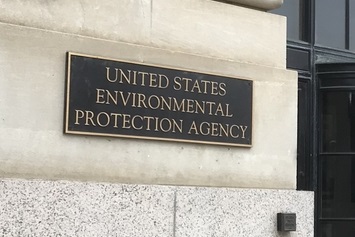The temporary policy the EPA issued March 26, 2020, to explain noncompliance situations in which the Agency will exercise enforcement discretion during the COVID-19 pandemic prompted a rush of letters from Democratic members of Congress who were concerned that the Agency intended to allow major sources of air pollution to violate their regulatory limits. Enforcement discretion are Agency code words for no or reduced enforcement of an alleged violation of environmental law or regulations and, as a practice, is typically contingent on the regulated entity’s meeting certain conditions.
In response to a letter written by Senator Diane Feinstein (CA), Susan Parker Bodine, the EPA’s assistant administrator for Enforcement and Compliance Assurance, sought to “clarify misconceptions and misreporting regarding the Temporary Policy” and “assure you that, contrary to allegations you may have read, EPA continues to enforce the environmental laws and protect human Health and the environment nationwide.”
The Policy
The temporary policy indicated that regulated entities may be entitled to enforcement discretion if they present evidence to the Agency that violations occurred because of conditions created by the pandemic—mainly, a shortage of critical staff needed to achieve compliance. According to the policy, types of violations subject to enforcement discretion include reporting obligations and milestones set forth in settlements and consent decrees. “[T]hese consequences may affect the ability of an operation to meet enforceable limitations on air emissions and water discharges, requirements for the management of hazardous waste, or requirements to ensure and provide safe drinking water.”
More Protections Needed
Concerns about relaxation of enforcement of air pollutant limits were expressed in a letter from eight House Representatives:
“Reports indicate that the EPA is broadly relaxing enforcement of environmental protections after receiving requests to do so from industry, in particular the oil and gas industry. The criteria pollutants commonly released by industrial activities, especially the fossil fuel industry, include carbon monoxide, nitrogen oxides, sulfur oxides, ozone, particulate matter, and lead. Exposure to these pollutants can have serious health consequences, such as trouble breathing, aggravated asthma, lung cancer, heart attack, chronic obstructive pulmonary disease (COPD), and premature death. The health impacts of these pollutants are well-established, and exposure is particularly dangerous for those with respiratory conditions. We are currently facing a severe respiratory pandemic, taking lives and hospitalizing thousands—at this moment, communities need more protections from toxic pollution, not less. Waiving environmental enforcement will only add to the severity of the COVID-19 crisis.”
Facility-Specific Determinations
In her letter, Bodine states that the “EPA is not seeking penalties for noncompliance only in circumstances that involve routine monitoring and reporting requirements, if, on a case-by-case basis, EPA agrees that such noncompliance was caused by the COVID-19 pandemic. In this scenario, regulated parties must document the basis for any claim that the pandemic prevented them from conducting that routine monitoring and reporting and present it to EPA upon request.”
Bodine goes on to clarify that the temporary policy does not excuse exceedances of pollutant limits in permits, regulations, and statutes due to the virus.
“EPA expects regulated entities to comply with all obligations, and, if they do not, the temporary policy says the Agency will consider the pandemic, on a case-by-case basis, when determining an appropriate response,” writes Bodine. “Further, in cases that may involve acute risks or imminent threats, or failure of pollution control or other equipment that may result in exceedances, EPA’s willingness to provide even that consideration is conditioned on the facility contacting the appropriate EPA region or authorized state or tribe to allow regulators to work with that facility to mitigate such risks or threats.”
Bodine notes that it would be impractical for the Office of Enforcement and Compliance Assurance (OECA) to make individual facility-specific determinations now—as some have requested—because the pandemic affects all 50 states.
“Making facility-specific determinations at this time regarding the impact of the pandemic would truly shut down EPA’s enforcement and compliance program,” writes Bodine. “The temporary policy does require case-by-case determinations. But those determinations will be made after the pandemic is over, and EPA reserves the right to disagree with any assertion that noncompliance was caused by the pandemic.”

